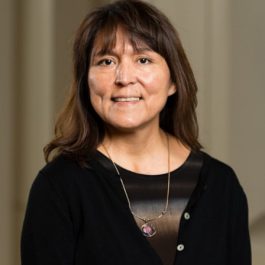Presented by U-M Professor Denise Sekaquaptewa.
Learning to recognize and prevent our bias from having negative impacts is a lifelong practice. Stereotype threat is the risk of confirming negative stereotypes about an individual’s racial, ethnic, gender, or cultural group, which can create a high cognitive load and reduce academic focus and performance.
Experimental research on implicit bias and stereotype threat has revealed the powerful influence of negative stereotypes on women and URM people in STEM. This work reveals differential evaluation of women vs. men and majority vs. URM groups, and shows the influence of a more “chilly” or negative climate for members of groups targeted by negative stereotypes.
U-M Professor Denise Sekaquaptewa will describe social science research findings regarding the experiences of White women and underrepresented racial/ethnic minority (URM) people in STEM fields and discuss recommendations for institutional change that can help create a more inclusive and equitable environment for all.
At Michigan Engineering, the job of creating a more diverse, equitable and inclusive community rests not within one organization or group of people, but with all of us. Only in this way can we move the field toward an equity-centered future. Equity-centered engineering is a guiding philosophy at the College that seeks to approach engineering with an intent to close—rather than unintentionally expand—societal gaps.
About Professor Denise Sekaquaptewa:
Her experimental research program focuses on implicit stereotyping, prejudice, stereotype threat, and the effects of category salience on test performance and academic motivation. Her current projects include studies of how environmental factors influence women students in math and science, and how stereotypes affect interracial communication. Read more about Professor Denise Sekaquaptewa.

